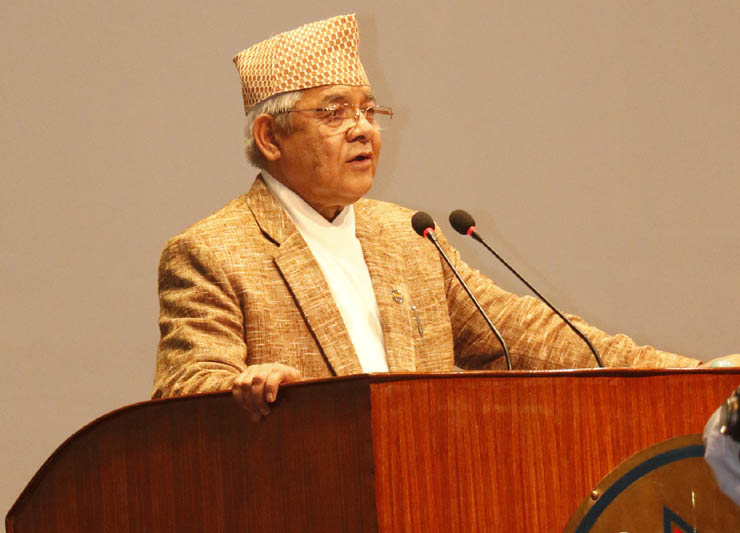Hurdles in Bamdev Gautam becoming prime minister
Kathmandu, April 30
Prime Minister KP Sharma Oli has offered to make party leader Bamdev Gautam the new prime minister, but the question is whether Gautam, who is not even a lawmaker, can become the next PM.
According to constitutional experts Bhimarjun Acharya and Pankaj Kumar Karna, Gautam cannot become a candidate for the prime minister, as he is not a member of the House of Representatives. “As per constitutional provisions, only the House of Representatives member can become the PM,” Acharya said.
Acharya said Gautam could become eligible for the post of PM if an HoR constituency was vacated so that he would contest and win the by-election, but there was no certainty that he would win a by-election. “If by-election is held, it will not happen soon. It may happen only after six months or even a year,” he said.
Advocate Karna pointed out that Gautam was repeatedly rebuffed by the prime minister in the past when he wanted to become a lawmaker.
Gautam lost parliamentary election from his home constituency of Bardiya in the last general election, but after the election he tried to become a member of the HoR first and when his bid for the same did not succeed, he tried to become a member of the National Assembly.
A few weeks ago, Gautam had told party leaders that he would become an NA member only if the constitution was amended to allow an NA member to become the prime minister. Oli refused to accept his condition. Gautam then decided to accept the offer of becoming an NA member without any condition, but again the PM refused to recommend him for NA member. Prior to this, Gautam had made Ramvir Manandhar vacate his Kathmandu Constituency No 7 seat so that he could contest by-election from there, but the Oli faction vehemently opposed him following which Gautam backed out.
Karna said if the PM held a by-election to make Gautam the new prime minister, that could make the PM and his party unpopular, mainly because the people wanted the government to focus on economic recovery programme, including the government’s programme to create employment and provide incentives to the agriculture sector.
“If the government sets aside these pressing issues and focuses its efforts on settling the ruling party’s internal feud, then that can be suicidal for the ruling party,” Karna added. He said the chance of amending the constitution was slim as two opposition parties — the Janata Samajwadi Party-Nepal and the Nepali Congress, whose support was necessary to amend the statute, were less likely to amend the constitution just to fulfil Gautam’s personal political ambition.
“Even other leaders of the ruling NCP are not in favour of amending the constitution at this stage,” Karna added. As the ruling NCP lacks two-thirds majority in the Parliament, it would need support of opposition parties to amend the constitution. The NCP has 174 members in the 275-member HoR, the Lower House of the Parliament.
A version of this article appears in e-paper on May 1, 2020, of The Himalayan Times.






